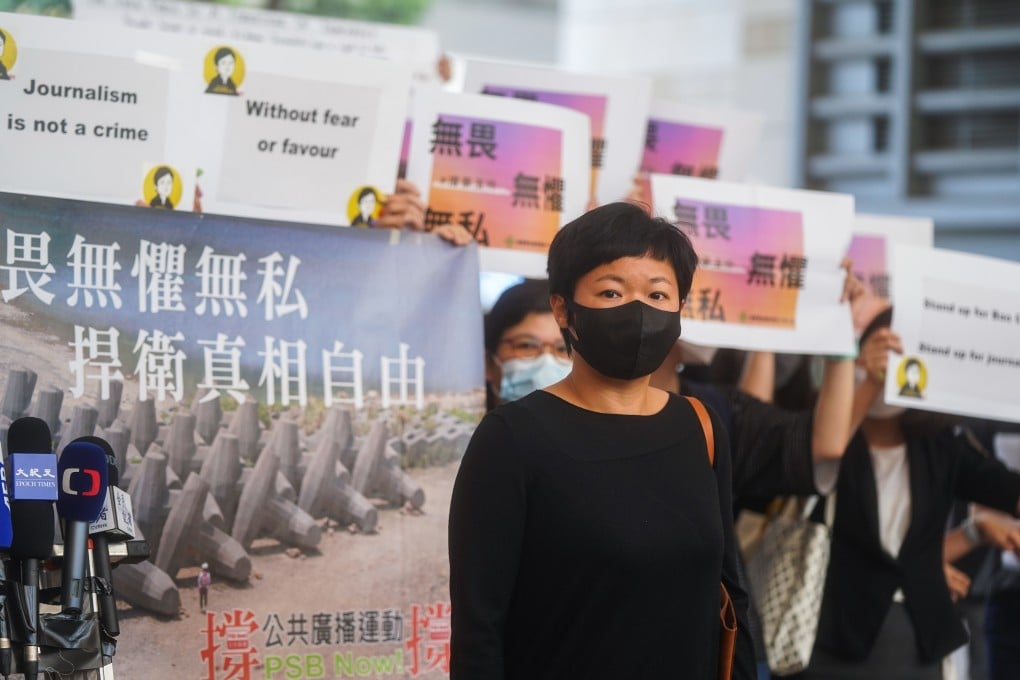Hong Kong protests: RTHK freelance producer Bao Choy convicted and fined HK$6,000 over charges relating to Yuen Long mob attack documentary
- Court finds RTHK contributor Bao Choy guilty of two counts of knowingly making a false statement over use of Transport Department database on car ownership
- Police confirm a reporter from pro-Beijing newspaper Ta Kung Pao also arrested and charged with same offence after complaint from car owner

The ruling came as police confirmed on Thursday evening that a reporter from pro-Beijing Chinese-language daily Ta Kung Pao was arrested and charged with the same offence after he allegedly searched car ownership details in a government database in August last year.
Police said the 47-year-old man was arrested on February 11 after the force received a complaint from a car owner whose personal information was said to have been published in a news article. The reporter appeared in Eastern Court on April 12. He was expected to appear in court again on May 25.
Thursday’s ruling at West Kowloon Court sparked an outcry from journalist groups over concerns of shrinking press freedoms at a time when the government is tightening access to public records.
RTHK contributor Bao Choy Yuk-ling was found to have twice deceived the Transport Department by using car ownership details obtained from a government database for news reporting, rather than the transport-related purpose she declared when seeking access.
The 37-year-old was charged with two counts of knowingly making a false statement, an offence punishable by a maximum of six months imprisonment and a HK$5,000 fine under the Road Traffic Ordinance.
